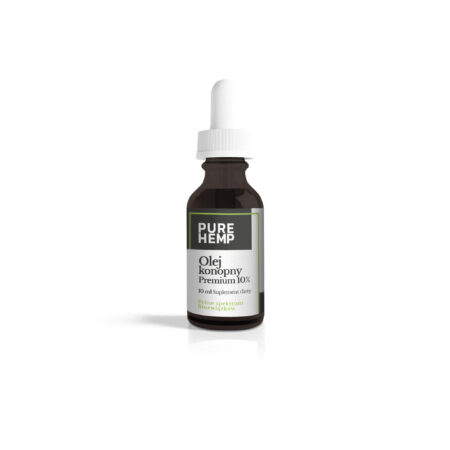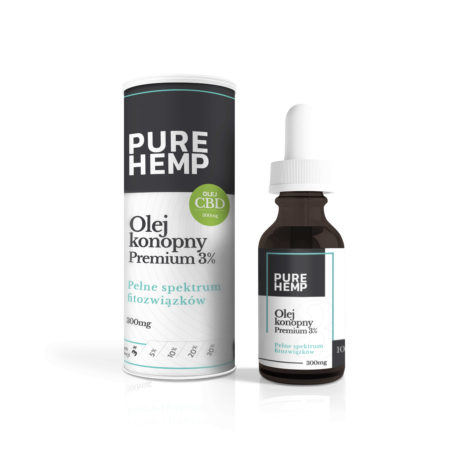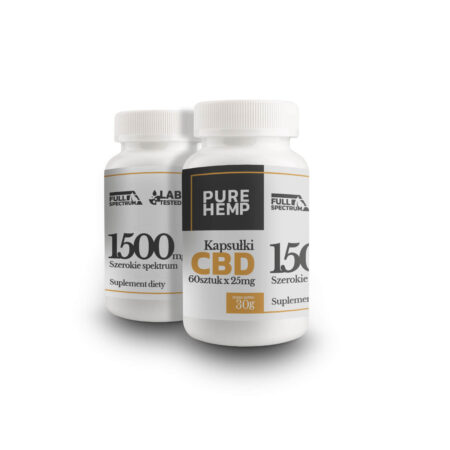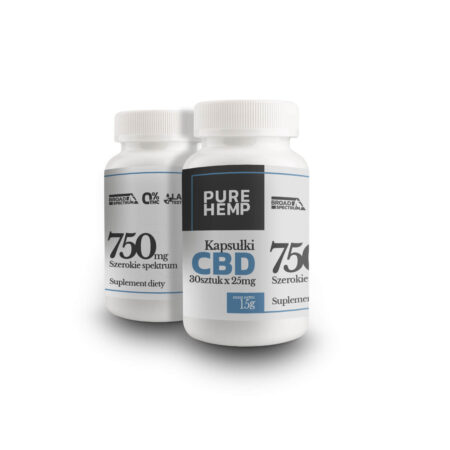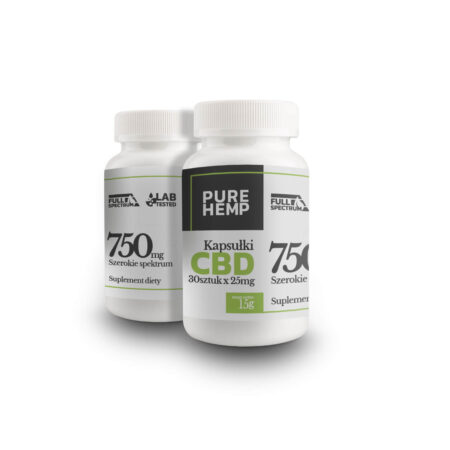Properties of CBD according to available scientific studies
In addition to the numerous other sources we refer to when writing about the properties of cannabidiol, we consider the information and data found on the drugbank.ca website to be the most valuable. This is a continuously updated bioinformatics and chemoinformatics database of drugs and compounds. The section dedicated to CBD cannabidiol can be found at this address: https://www.drugbank.ca/drugs/DB09061.
This article is intended to provide an overview of the therapeutic properties of CBD referring to research sources and patient and doctor testimonies.
Regardless of the controversy surrounding CBD, the wider health sector or medical community needs to realise that plant-based cannabinoids are already here. Their role will continue to grow. Why? The answer is trivially simple. Endocannabinoids are ubiquitous and essential in the human body. The body produces them for its own needs. They play a key role in signalling and regulatory processes in the functioning of the human internal organs. Their adequate availability in the system is also associated with the body's ability to heal itself.
Is CBD oil a medicine or a supplement?
CBD oil is not a drug. In Poland, it is sold as a dietary supplement, a source of exogenous cannabinoids to maintain the normal functioning of the endocannabinoid system. Supports homeostatic processes facilitating the rebalancing of vital processes.
The human body produces (endo)cannabinoids. A lack or insufficient amount of these can lead to the onset or worsening of already existing health problems and dysfunctions . It can also signify a reduced ability of the body to autoregulate vital processes and, as a result, inhibit recovery and health.
Supplying them externally, e.g. from CBD oil, means that we are supplementing these chemical compounds, which are necessary to maintain the body's normal functioning. In this context CBD oil should be considered a dietary supplement.
Why is it with a clear classification?
Well, at the moment, there are no guidelines for normal levels of endocannabinoids in the human body. As such, it is difficult to determine appropriate levels of daily cannabinoid intake for supplementation purposes.
It is also possible that the amount of endocannabinoids produced increases in a situation of increased demand, but at the same time our body has a limited "production" capacity. If the demand is greater than the supply, it is necessary to provide substitutes in order for the regulatory processes to work properly, of which plant cannabinoids are the most excellent source.
The solution to the classification problem is not made easier by the fact that, in addition to their typically supplementary functions, CBD cannabidiol and other cannabinoids show potential for preventive, therapeutic or even medicinal properties. But so do many other chemical compounds officially recognised as dietary supplements.
Whether one is talking about a supplement or a drug often determines the dose i.e. the amount of a given preparation/chemical compound used.
The mechanism responsible for these properties still needs to be clarified, but for the moment it appears that the therapeutic or medicinal properties of cannabinoids are indirect. This means that they are not themselves a medicinal product (drug) in the definitional sense of the word.
The properties of cannabidiol are inextricably linked to its effects. You can read about how CBD works and what people who use e.g. cbd oil or dried hemp say about it in the article: CBD Action
Cannabinoids are not a cure-all. They never have been and never will be. The number of their potential supplementary, medical or therapeutic uses is a direct result of the fact that, since the body itself produces so-called endogenous cannabinoids, we need them to function properly. Furthermore. Cannabinoid receptors CB1 and CB2 are spread throughout the body: in the brain, all organs, in the skin and even in immune cells. Receptors and cannabinoids are therefore ubiquitous in the human body.
Preventive properties of CBD and other cannabinoids
Since cannabinoid receptors are so densely distributed and the human body itself produces cannabinoids endogenously, this could mean that their role is crucial to our health. Their deficiency can lead to disease or dysfunction or otherwise ... cannabinoid deficiency facilitates the development of diseases/disorders and hinders recovery/healing.
The use of plant cannabinoids is sometimes identified with that part of the biological matrix where the body meets the mind. The cannabidiol and other cannabinoids found in CBD hemp oil show much more similarity to our endocannabinoids than any synthetic drugs.
Dr Bradley E. Alger a Harvard scientist with a doctorate in experimental psychology and considered the world's leading expert on endocannabinoids said that
"The complexity of the processes of the immune system, the nervous system and literally every organ in the human body makes endocannabinoids the bridge between the body and the mind. By understanding this system, we begin to see the mechanisms linking brain activity to physical health and disease. "
If we look at the whole issue in this way, then indeed, the use of Purehemp CBD oil shows strong preventive potential. Preventing the deficiency of endocannabinoids essential for the proper functioning of the body through the supplementation of natural plant cannabinoids (CBD, CBN, CBC, CBG and others) is an element of prevention. And this theoretically goes without saying.
Why theoretically? It all boils down to official definitions and the degree of scientific research deemed relevant and properly conducted. Definitions as definitions are: they are supposed to protect us. Unfortunately, there are times when they do not stand up to a clash with reality. This seems to be the situation with cannabinoids.
Known properties of CBD

Let me say at the outset that the list is not complete. I am only presenting the 11 best, at the moment, documented properties.
1. Antidiabetic properties of CBD
Reduces the risk of obesity and diabetes.
The percentage of obesity among cannabinoid users is one-third lower, and this despite one of the cannabinoids (THC) being associated with increased appetite. In contrast, an Israeli-American study in a phase 2 human clinical trial indicated that CDB promotes weight loss by converting white adipose tissue into brown adipose tissue while maintaining normal insulin production and sugar metabolism.
Excessive insulin promotes the conversion of sugars into body fat resulting in obesity. Research in this area may show that the regulatory function that cannabinoids show towards insulin may represent a breakthrough in the prevention of obesity and type 2 diabetes.
You can find more on this topic here: Hemp oil and diabetes - hope or truly effective diabetic dietary ingredient?
2. Anti-cholesterol properties of CBD
Lowers the risk of cardiovascular disease and improves lipid profile
People who use cannabinoids have higher levels of HDL-C cholesterol called 'good cholesterol' compared to those who do not. There are also studies that have shown that people who supply cannabinoids to the body have lower levels of LDL-C cholesterol called 'bad cholesterol'.
A growing body of evidence suggests that the endocannabinoid system plays a critical role in the pathology of atherosclerosis. The CB2 receptor activity of the endocannabinoid system in the face of the inflammation associated with atherosclerosis increases allowing the endogenous cannabinoids anandamide and 2-AG to minimise its levels. The CB2 receptor is stimulated on a very similar basis by cannabinoids including CBD cannabidiol.
In animal model studies, CBD showed cardiovascular protective properties, and even low doses administered orally showed an effect of slowing down atherosclerotic processes.
3. Antioxidant and anticancer properties of CBD
Lowers the risk of developing certain types of cancer
In this area, we still have more questions than answers. A 2012 study in animal models showed that administration of CBD significantly reduces the risk of prostate cancer. There are also studies indicating that THC inhibits the growth of tumours e.g. liver adenocarcinoma.
In contrast, in 2015, researchers analysed the medical data of more than 84,000 male California residents and found a correlation indicating that those taking cannabinoids were as much as 45% less likely to develop bladder cancer.
Cosmetics and preparations with cannabinoids can be applied epidermally showing protective potential against skin cancer variants.
4. Neuroprotective, neuroprotective properties of CBD
It supports the maintenance of normal brain function and also protects against the development of neurodegenerative diseases and against post-traumatic effects.
Cannabinoids, including CBD in particular, help maintain normal brain function. The mechanism is complex and includes, among other things, the removal of dead cells and mitochondrial efficiency (improves energy delivery to cells). CBD and other antioxidant cannabinoids also reduce the toxicity of excess glutamate. Excess glutamate leads to over-stimulation of nerve cells resulting in cell damage and death.
As the brain ages, the formation of new neurons slows down. A 2008 study showed that low doses of CBD and THC-like cannabinoids promoted the formation of new neural cells in animal models in ageing organisms as well. CBD can benefit the brain protecting it from the effects of neurodegenerative diseases such as Alzheimer's, Parkinson's and neuropathy.
5. Reduces the risk of bone disease and promotes the regeneration of broken bones
Cannabinoids play a role in the metabolic processes of the skeletal system. In particular, CBD blocks the enzyme responsible for the breakdown of compounds that are the 'raw material' in bone reconstruction, thereby reducing the risk of age-related bone diseases such as osteoporosis and osteoarthritis. CBD stimulates bone regeneration so it can also speed up the regeneration process of broken bones.
In animal model studies, it has been shown that fused bone is 35-50% more robust than in cases who were not given CBD during recovery.
Source: PubMED.gov
6. Antioxidant properties of CBD
Protects and improves the quality and condition of the skin
The skin has the highest number and concentration of CB2 receptors. Applying CBD to the skin via ointments, creams, lotions, serums or CBD oil allows you to benefit from the powerful antioxidant properties of cannabidiol. The skin's regeneration process is stimulated, especially in the context of damage caused by free radicals, UV radiation and environmental pollutants.
CB2 cannabinoid receptors are also associated with their important role in sebum production processes. Hemp preparations including CBD oil applied dermally can be used to alleviate symptoms of acne and psoriasis.
Natural hemp preparations have been used all over the world in the treatment, regeneration of wounds and skin damage for thousands of years.
An increasing number of well-documented cases are also emerging in the context of the treatment of certain skin cancers with epidermally applied cannabinoids. In particular, cases of cure of melanoma (melanoma) and basal cell carcinoma are relatively highly prevalent and documented.
7. Anti-inflammatory properties of CBD
The anti-inflammatory properties of cannabinoids and CBD are among the best studied.
CBD maintains the proper functioning of the endocannabinoid system in a systemic way. This means that it acts throughout the body wherever endocannabinoid receptors (CB1 and CB2) are present. The therapeutic properties in this regard are impressively broad due to the fact that inflammation is a common companion to many diseases and dysfunctions.
8. Anti-stress and anti-anxiety properties of CBD
Oral intake of cannabinoids appears in the context of minimising perceived levels of anxiety as early as in Vedic texts dating from around 2000 B.C.
However, attention should be paid to the fact that THC can increase the experience of anxiety in some patients. The effects of CBD have repeatedly been linked to its high efficacy in terms of reducing the levels of feeling and experiencing medication. An analysis of available studies from 2012 showed that this was particularly true for social medication (social phobias).
There is also research indicating that stimulating the endocannabinoid system is an effective strategy for alleviating the physical and behavioural consequences of stress.
9. the antidepressant properties of CBD
CBD can effectively regulate mood, levels of perceived satisfaction and experienced contentment.
Clinical depression manifests itself as chronic sadness and loss of interest in life, eventually leading to decreased appetite, levels of available vital energy and, in extreme cases, suicide attempts. Commonly used in conventional medicine, pharmacological drugs aim to increase levels of serotonin, considered a mood stabiliser (it is also called the happy hormone).
According to some studies, cannabinoids keep serotonin levels high enough to maintain a positive mood. In the case of THC, this effect is noticeable at low doses, but the opposite is true at high doses.
In a 2009 study, the researchers concluded that there is a significant amount of evidence to argue that the endocannabinoid system may play a key role in pharmacotherapeutic trials for the treatment of depression.
On the other hand, a study was published in 2016, the findings of which indicated that CBD may represent a new fast-acting treatment for depression (antidepressant) by enhancing the function of the serotonergic system and regulating the intensity of interneuronal signalling via the 5-HT1A receptor.
CBD may be particularly effective for depression caused by long-term stress, which has been shown repeatedly to negatively affect the amount of endogenous cannabinoids produced.
You can read more about this in the article CBD and depression on our blog.
10. Analgesic properties of CBD
Cannabinoids have been used for pain relief for centuries around the world.
Of all the reasons for people to reach for CBD, its painkilling properties and uses are among the most common. Cannabidiol is readily used by people struggling with chronic pain because it is recognised as an extremely effective, yet natural way to manage pain.
Again, the effectiveness of CBD comes down to its effect on the proper functioning of the endocannabinoid system. As a signalling system, the endocannabinoid system is also responsible for transmitting pain signals.
Most of the discussion currently taking place on the topic of the use of CBD's analgesic properties revolves around answering questions about the dosage of CBD for pain relief.
Cannabinoids can be used in parallel with opioid therapy, and numerous studies indicate that may help reduce opioid doses necessary to achieve an analgesic effect while reducing the intensity of tolerance-building and reducing withdrawal side-effects at the end of therapy.
With regard to the analgesic properties of cannabinoids including CBD cannabidiol, we now have the results of at least ten radomised, controlled studies on more than 1,000 patients that demonstrate the efficacy of cannabinoids in the application of its analgesic properties against neuropathic pain of various origins.
Analgesic properties also exhibit other cannabinoids: CBG, CBC, THCV and THCA. Full Spectrum preparations such as CBD oil 10% Full Spectrum available in our shop also contains beta-caryophyllene, myrcene and linalool - terpenes, which are also attributed with analgesic properties. Acting in a group, they increase the analgesic efficacy of the preparation.
11. Improving sleep quality and reducing the risk of sleep apnoea
The relationship between cannabinoids and sleep is complex and not obvious.
Several studies conducted between 2004 and 2008 indicated different effects of different cannabinoids on improving sleep quality. In general, as little as 15mg of THC showed a sleep-inducing effect while 15mg of CBD showed a stimulating effect. The authors wrote in their conclusion that CBD could be an effective treatment for people struggling with excessive daytime sleepiness caused by poor quality sleep at night. Another study indicated that CBD has a stimulating effect in most cases, but also improves the quality of sleep several hours after its application.
Although generally THC has a more 'sleepy' effect, CBD taken in the evening before bed improves the quality of sleep because it has a soothing and relaxing effect on both mind and body. That is, during the day it stimulates, but at night it allows you to fall into a blissful sleep. This bipolar CBD effect is probably the result of the balance that CBD brings to the endocannabinoid system.
With regard to sleep apnoea, we have two relevant studies. In 2002, it was observed in animal model studies that THC maintains respiratory stability by modulating the signals of the serotonergic system reducing spontaneous sleep apnoea problems. On the other hand, a study of a pharmacological drug called dronabinol, which is a synthetic equivalent of THC, was conducted in 2013. The study observed an improvement in sleep quality in 15 of the 17 participants in a three-week study.
We would like to remind you that the Full Spectrum CBD oil on offer in our CBD shop also contains trace, legal but nevertheless possibly health-promoting amounts of THC. Therefore, it can be said that it contains both cannabinoids, which are crucial from the point of view of improving the quality of sleep, and its use will be more effective in terms of sleep than preparations completely devoid of THC, with the simultaneous guarantee that the amount of THC is too small to cause the intoxicating effect typical of this cannabinoid even in large doses.
If the aim of using CBD oil in your case is precisely to improve the comfort and quality of your sleep, we particularly recommend our cbd oil 3% or cbd oil 5% full spectrum version.
Summary: CBD properties
The article explains what we now know about the preventive, supplementary and therapeutic properties of cannabinoids and CBD cannabidiol. It turns out that we already know quite a lot. It is also a fact that further research is necessary and many questions still need to be answered. Cannabidiol CBD is effective and its properties appear to be solidly documented especially in terms of its effect on maintaining the proper functioning of the endocannabinoid system.
Did this article appeal to you? Would you like to try Full Spectrum's high quality CBD oil?
Choose one of our most popular formulations:
The full spectrum of health-promoting phytocannabinoids is also available in capsule form, and our CBD crystal is THC-FREE:
You can find disclaimers regarding the content published on the pages of the knowledge base by clicking here.
